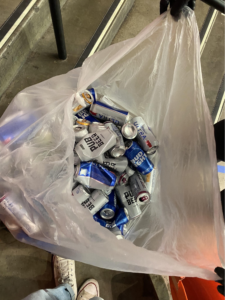Ally Mauck, Josie Kennedy, & Kristin Dengate
Dr. Mari Rice (Ed. D) – ENVSTD 121
Boise State Campus Sustainability
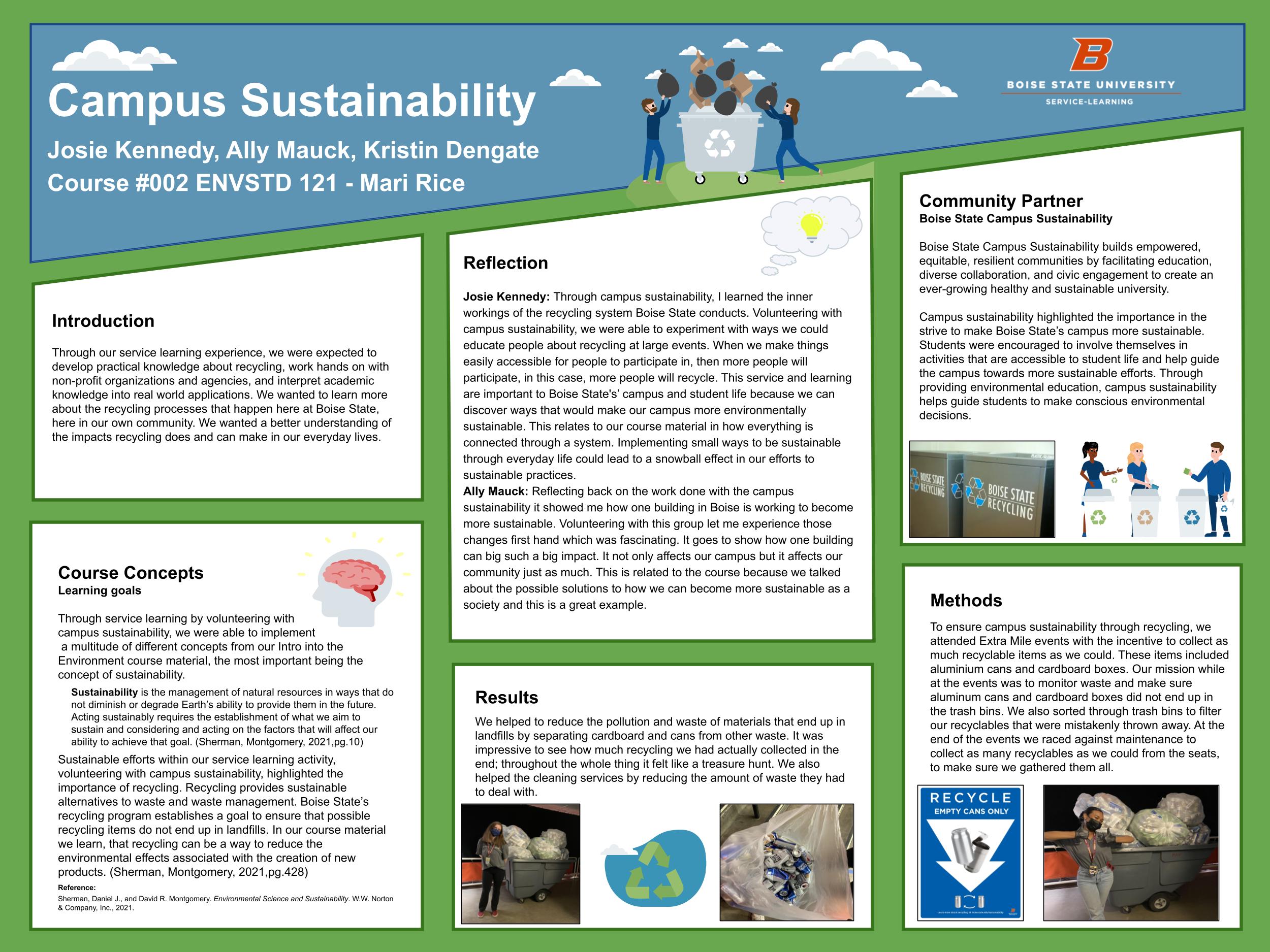
Introduction
Through our service learning experience, we were expected to develop practical knowledge about recycling, work hands on with non-profit organizations and agencies, and interpret academic knowledge into real world applications. We wanted to learn more about the recycling processes that happen here at Boise State, here in our own community. We wanted a better understanding of the impacts recycling does and can make in our everyday lives.
Reflection
Josie Kennedy: Through campus sustainability, I learned the inner workings of the recycling system Boise State conducts. Volunteering with campus sustainability, we were able to experiment with ways we could educate people about recycling at large events. When we make things easily accessible for people to participate in, then more people will participate, in this case, more people will recycle. This service and learning are important to Boise State’s’ campus and student life because we can discover ways that would make our campus more environmentally sustainable. This relates to our course material in how everything is connected through a system. Implementing small ways to be sustainable through everyday life could lead to a snowball effect in our efforts to sustainable practices.
Ally Mauck: Reflecting back on the work done with the campus sustainability it showed me how one building in Boise is working to become more sustainable. Volunteering with this group let me experience those changes first hand which was fascinating. It goes to show how one building can big such a big impact. It not only affects our campus but it affects our community just as much. This is related to the course because we talked about the possible solutions to how we can become more sustainable as a society and this is a great example.
Community Partner: Boise State Campus Sustainability
Boise State Campus Sustainability builds empowered, resilient communities by facilitating education, collaboration, and civic engagement to create an ever-growing healthy and sustainable university.
Campus sustainability highlighted the importance in the strive to make Boise State’s campus more sustainable. Students were encouraged to involve themselves in activities that are accessible to student life and help guide the campus towards more sustainable efforts. Through providing environmental education, campus sustainability helps guide students to make conscious environmental decisions.
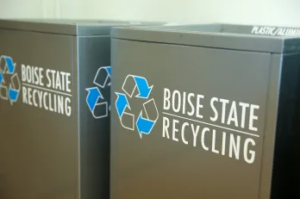
Course Concepts
Learning Goals
Through service learning by volunteering with campus sustainability, we were able to implement a multitude of different concepts from our Intro into the Environment course material, the most important being the concept of sustainability.
Sustainability is the management of natural resources in ways that do not diminish or degrade Earth’s ability to provide them in the future. Acting sustainably requires the establishment of what we aim to sustain and considering and acting on the factors that will affect our ability to achieve that goal. (Sherman, Montgomery, 2021,pg.10)
Sustainable efforts within our service learning activity, volunteering with campus sustainability, highlighted the importance of recycling. Recycling provides sustainable alternatives to waste and waste management. Boise State’s recycling program establishes a goal to ensure that possible recycling items do not end up in landfills. In our course material we learn, that recycling can be a way to reduce the environmental effects associated with the creation of new products. (Sherman, Montgomery, 2021,pg.428)
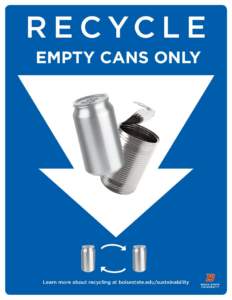
Methods
To ensure campus sustainability through recycling, we attended Extra Mile events with the incentive to collect as much recyclable items as we could. These items included aluminium cans and cardboard boxes. Our mission while at the events was to monitor waste and make sure aluminum cans and cardboard boxes did not end up in the trash bins. We also sorted through trash bins to filter our recyclables that were mistakenly thrown away. At the end of the events we raced against maintenance to collect as many recyclables as we could from the seats, to make sure we gathered them all.
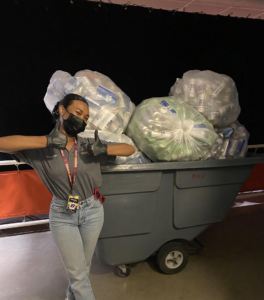
Results
We helped to reduce the pollution and waste of materials that end up in landfills by separating cardboard and cans from other waste. It was impressive to see how much recycling we had actually collected in the end; throughout the whole thing it felt like a treasure hunt. We also helped the cleaning services by reducing the amount of waste they had to deal with.

